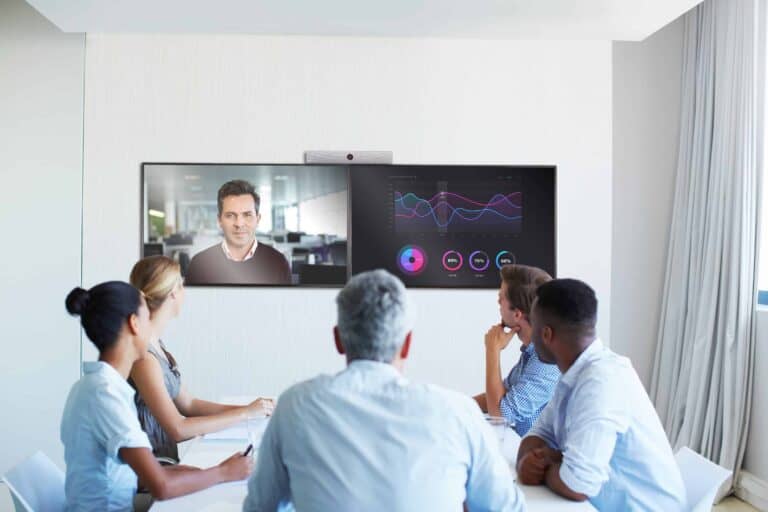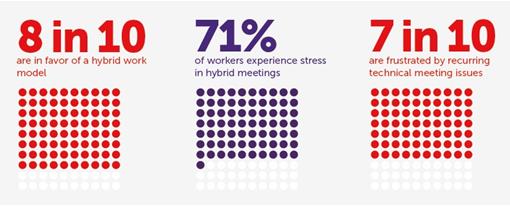Employees who remotely participate in hybrid meetings experience a ‘meeting disparity’ with colleagues who are physically present. This is concluded in a survey by Barco, a collaboration technology specialist.
The Barco ClickShare survey underscores that employees who work remotely still face various participating in hybrid meetings. Many respondents experience engagement, collaboration and user experience on a level that’s subpar to colleagues physically present.
About a third of the respondents indicated that they find it difficult to participate in hybrid meetings. This includes a lack of control over the meeting experience. Another third say they find it difficult to have their voices heard when participating remotely. Furthermore, twice as many remote hybrid meeting participants feel that physical participants are getting more attention than remote participants.
Frustrations among remote workers
The survey also states that frustrations with technology are a major source of annoyance in hybrid meetings. One in four respondents struggles to connect to and navigate in hybrid meetings. According to Barco, this has a major impact on job satisfaction.
Employees who are physically present aren’t exempt from technical difficulties. Among other things, participants find it challenging to connect their laptops to video hardware in conference rooms.
According to a third of those frustrated, frustrating technical aspects give reason for hopping jobs. They indicate that they would consider offers from companies with a well-defined hybrid policy, clear guidelines and tools for efficient participation in hybrid meetings.
According to Barco, companies need to start working on policies for hybrid work. Many organizations do not have an official policy yet.

